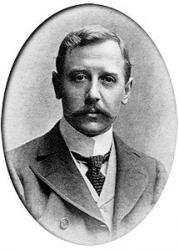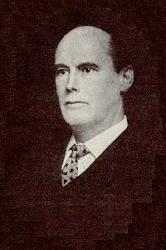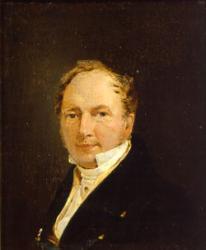Planning worship?
Check out our sister site, ZeteoSearch.org,
for 20+ additional resources related to your search.
- |
User Links
Person Results
Johann Scheffler
1624 - 1677 Person Name: Johann Scheffler, 1624-1677 Composer of "CULBACH (ACH WANN)" in CPWI Hymnal Used Angelus Silesius as a pen name. See also Angelus Silesius, 1624-1677
Johann Scheffler
Henry Downton
1818 - 1885 Author of "For Thy mercy and Thy grace" in The Hymnal Downton, Henry, M.A, son of Mr. John Downton, Sub-Librarian of Trinity College, Cambridge, was born at Pulverbatch, Shropshire, Feb. 12, 1818, and educated at Trinity College, Cambridge, where he graduated B.A. 1840, and M.A. 1843. Taking Holy Orders in 1843, he became Curate of Bembridge, Isle of Wight, 1843, and of Holy Trinity, Cambridge, 1847. In 1849 he was preferred to the Incumbency of St. John's, Chatham. He went to Geneva as English Chaplain in 1857; and was appointed Rector of Hopton in 1873. He was also for some time Domestic Chaplain to the late Lord Monson. He died at Hopton, June 8, 1885. Mr. Downton published a translation of Professor Ernest Naville's Lectures on Modern Atheism, 1865; and Holy Scripture and the Temperance Question, 1878. His hymns were chiefly contributed to the Church of England Magazine; A. T. Russell's Psalms & Hymns, 1851; Barry's Psalms & Hymns, 1862; and the Sunday Magazine. In 1873 he collected these and published them as Hymns and Verses. His translations from the French of Alexandre Vinet are also in the volume. His best known hymns are "Another year, another year" (given anonymously in the Harrow School Hymns, 1855); "For Thy mercy, and Thy grace"; and " Harp awake, tell out the story." These have attained to great popularity, and are in extensive use.
- John Julian, Dictionary of Hymnology (1907)
Henry Downton
Franz Xaver Schnyder von Wartensee
1786 - 1868 Person Name: Schnyder von Wartensee Composer of "HORTON" in Common Praise
Franz Xaver Schnyder von Wartensee
Georg Christoph Strattner
1644 - 1704 Person Name: George C. Strattner Composer of "POSEN" in The Pilgrim Hymnal Georg Christoph Strattner; b. about 1650, in Hungary; d. 1704-5 in Weimar
Evangelical Lutheran Hymnal, 1908
Georg Christoph Strattner
Joseph Smith
1800 - 1873 Composer of "INNCOCENTS" in The Sunday School Hymnary Sir, - It may interest some of your readers to learn that the hymn tune "Innocents" was composed by my grandfather, Joseph Smith, of Halesowen, near Birmingham (born 1800; died 1873).
I well remember hearing my grandfather say that he wrote the tune at the request of a lady friend, to the words "Twinkle, twinkle, little star" to be sung by the children of her school.
My grandfather was a thorough musician and an excellent singer, though he never practised professionally. He knew the whole of the Psalms from memory, and it used to be one of my greatest pleasures, when, as a child, I visited my grandparents, to sit up after the usual bedtime hour and listen to him as he sang, in his sweet tenor voice, one Psalm after another, to music he would extemporise, and play upon his cabinet organ, the room being in total darkness.
Joseph Smith, Organist and Choirmaster of St. Paul's Church, San Diego, California, March 23, 1901; excerpted from The musical times and singing class circular, Vol 42, 1901 (London: Novello and Company, Ltd.)
Joseph Smith
Edwin H. Lemare

1865 - 1934 Person Name: E. H. Lemare Composer of "HAVEN" in Hymns and Tunes for Schools Born: September 9, 1865, Ventnor, Isle of Wight, Hampshire, England.
Died: September 24, 1934, Hollywood, California.
Buried: Forest Lawn Memorial Park, Glendale, California.
Lemare received the Goss scholarship at the British Royal Academy of Music (RAM) in 1878, and went on to became a fellow of the RAM and the Royal College of Organists. He played the organ at St. John the Evangelist’s, Brownswood Park; St. Andrew’s Church, and Public Hall, Cardiff, Wales; the Parish Church, Sheffield (1886); Holy Trinity Church, Sloane Street; and St. Margaret’s Church, Westminster. He made a recital tour of Canada and America in 1900, and also toured Europe, Australia, and New Zealand, where he helped design organs for the Auckland Town Hall. He played the organ at the Carnegie Institute in Pittsburgh, Pennsylvania (1902-15), gave recitals at the Panama-Pacific Exposition in San Francisco, California, in 1915, and was municipal organist in San Francisco (1917-21) and Portland, Maine (1921).
Sources:
Colles, Volume II, p. 135
--www.hymntime.com/tch
Edwin H. Lemare
W. T. Giffe

1848 - 1926 Composer of "SUPPLICATION" in Hours of Singing Born: June 28, 1848, Portland, Indiana.
Died: July 13, 1926, Seattle, Washington.
Buried: Mount Hope Cemetery, Logansport, Indiana.
Giffe grew up in College Corners, Indiana (near Portland), and served in the Army during the closing days of the American civil war. After the war, he attended Liber College, and studied law for two years. While in college, he was a member of the college glee club, and took lessons in the college singing school. Later, he studied with teachers such as J. W. Suffern, George Root, Luther Emerson, Horatio Palmer, and Henry Perkins.
Giffe had a fine baritone voice, and was in demand as a concert singer. He soon became popular as a chorus director and convention conductor. His first book for singing schools was New Favorite, which sold thousands of copies. The Oliver Ditson Company of Boston, Massachusetts, published many of his early works, but Giffe went on to form his own publishing house, the Home Music Company, in Logansport, Indiana. He also edited the Home Music Journal for several years. Later, Giffe became supervisor of music in the public schools in his home town. And he was one of three men selected to deliver an address in Logansport, Indiana, at the memorial services for assassinated president William McKinley.
Giffe and his wife Nancy had no children. His works include:
The Brilliant, 1874
Crown of Gold, with Frank Davis (Logansport, Indiana: Home Music Company, 1892)
The New Deal, with Louis Eichhorn (Logansport, Indiana: Home Music Company, 1898)
A Practical Course in Harmony and Musical Composition
--www.hymntime.com/tch
W. T. Giffe
Richard R. Chope
1830 - 1928 Person Name: Rev. R. R. Chope Composer of "[For Thy mercy and Thy grace]" in The New Children's Hymnal Chope, Richard Robert, M.A., born Sept. 21, 1830, educated at Exeter College, Oxford, B.A., 1855, and took Holy Orders as Curate of Stapleton, 1856. During his residence at Stapleton the necessities of the Choir led him to plan his Congregational Hymn and Tune Book, published in 1857. In 1858 he took the Curacy of Sherborne, Dorset; in the following year that of Upton Scudamore, where he undertook the training of the Chorus of the Warminster district for the first Choral Festival in Salisbury Cathedral; and in 1861 that of Brompton. The enlarged edition of The Congregational Hymn Book was published 1862, and The Canticles, Psalter, &c, of the Prayer Book, Noted and Pointed, during the same year. In 1865 he was preferred to the parish of St. Augustine's, Queen's Gate, South Kensington, and subsequently published Carols for Use in Church during Christmas and Epiphany, 1875; Carols for Easier and Other Tides, 1887; and other works. Mr. Chope has been one of the leaders in the revival and reform of Church Music as adapted to the Public Services. He was one of the originators of The Choir and Musical Record, and was for some time the proprietor and assistant editor of the Literary Churchman.
--John Julian, Dictionary of Hymnology (1907)
Richard R. Chope
C. E. F. Weyse

1774 - 1842 Composer of "HANS TUASEN" in Immanuel Hymnal Weyse, Christoph Ernst Friedrich; b. Mar. 5, 1774, Altona (now in W. Germany), d. Oct. 8, 1842, Copenhagen; Danish composer of German extraction
C. E. F. Weyse
John H. Willcox
1827 - 1875 Person Name: J. H. Willcox, Mus. Doc. Composer of "[For Thy mercy and Thy grace]" in The Hymnal, Revised and Enlarged, as adopted by the General Convention of the Protestant Episcopal Church in the United States of America in the year of our Lord 1892
John H. Willcox


 My Starred Hymns
My Starred Hymns

